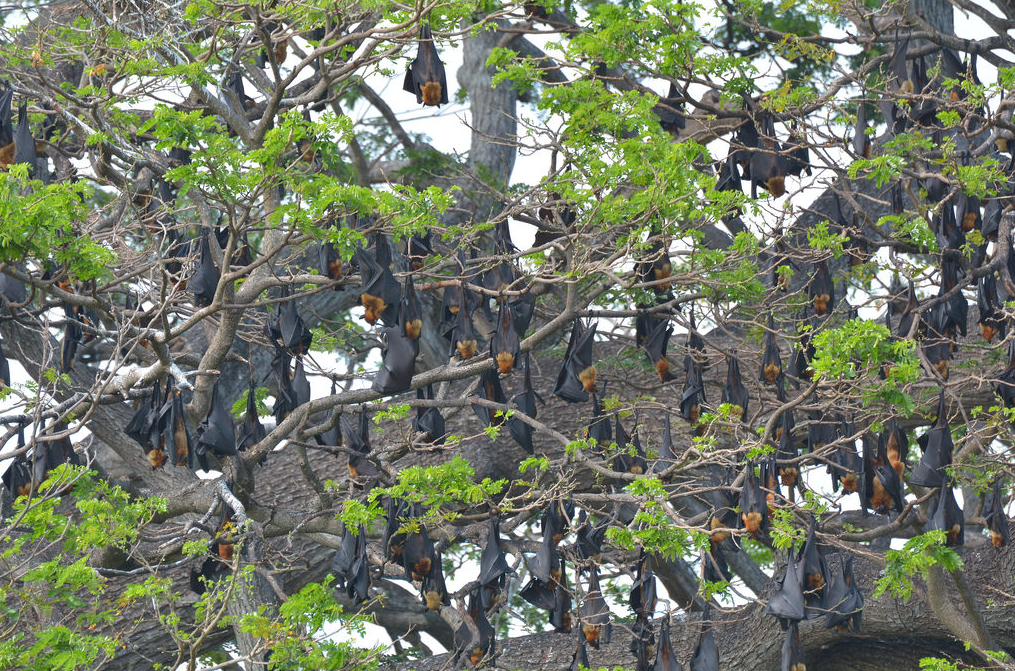 NEWS
NEWS
 NEWS
NEWS
 NEWS
NEWS
Scientists are hoping to use Big Data and machine learning to prevent further outbreaks of Ebola, by identifying the likelihood of various bat species carrying the virus.
Ebola is what’s known as a filovirus, which are long filament-shaped viruses whose genome is encoded on a single strand of RNA. Ebola is the most famous example, but there are others which are just as deadly, such as the Marburg virus that takes its name from an outbreak in the city of Marburg, Germany, in 1967. Ebola, like Marburg, is spread when people come into direct contact with the bodily fluids of infected persons.
The most infamous outbreak of Ebola occurred just two years ago, in West Africa in 2014, where 11,310 people died from the disease, the World Health Organization says. In that particular outbreak it’s believed the infection originally stemmed from bats, which are carriers of the virus but do not become sick. They can however, spread the disease to humans.
Given the devastating threat to life that Ebola presents, a team of scientists led by the Cary Institute of Ecosystem Studies is giving machine learning a whirl in order to try and prevent future outbreaks. The team has just published a paper in the PLOS Neglected Tropical Diseases journal shedding light on its work, saying that machine learning seems to be “particularly well suited to comparative studies”.
“The model allows us to move beyond our own biases and find patterns in the data that only a machine can,” said David Hayman, co-author of the study and researcher at the Institute of Vet, Animal & Biomedical Sciences at Massey University.
The researchers have developed an algorithm that’s able to pinpoint locations most at risk of an Ebola outbreak, based on the behavior and traits of filovirus-positive bat species.
The researchers began their work by profiling various types of bat that are likely to carry Ebola and other filoviruses. They looked at the biological characteristics of 21 bat species that are known carriers of these viruses. They then compiled a large dataset that considers 57 variables including the bat’s diets, migratory patterns, populations and reproductive behavior, from a sample of 1,116 bats. Bats were then assigned binary code numbers of 0 or 1 depending on if they were known to be carrying a filovirus or not.
Researchers then used a technique called “generalize boosted regression” to create a machine learning algorithm that’s able to identify traits that indicate if a bat is likely to be a filovirus carrier or not. In tests, the algorithm showed it could successfully pick out diseased bats from those that were filovirus-free with an estimated 87 percent accuracy.
The team came up with some interesting findings about the pestilence-bringing bats. Those species that are more at risk of carrying filoviruses tend to live in large groups, become sexually active at an earlier age, give birth to more than on pup, and usually have larger offspring. More worrying though, was that the scientists found many bat species from outside of Africa which also have the potential to carry the disease. The team warned that Burma, Malaysia, Thailand, Vietnam and some parts of India could all become potential Ebola hotspots in future.
“Maps generated by the algorithm can help guide targeted surveillance and virus discovery projects,” noted John Drake, co-author of the study and researcher at the School of Ecology at the University of Georgia. “We suspect there may be other filoviruses waiting to be found. An outstanding question for future work is to investigate why there are so few filovirus spillover events reported for humans and wildlife in Southeast Asia compared to equatorial Africa.”
Support our mission to keep content open and free by engaging with theCUBE community. Join theCUBE’s Alumni Trust Network, where technology leaders connect, share intelligence and create opportunities.
Founded by tech visionaries John Furrier and Dave Vellante, SiliconANGLE Media has built a dynamic ecosystem of industry-leading digital media brands that reach 15+ million elite tech professionals. Our new proprietary theCUBE AI Video Cloud is breaking ground in audience interaction, leveraging theCUBEai.com neural network to help technology companies make data-driven decisions and stay at the forefront of industry conversations.